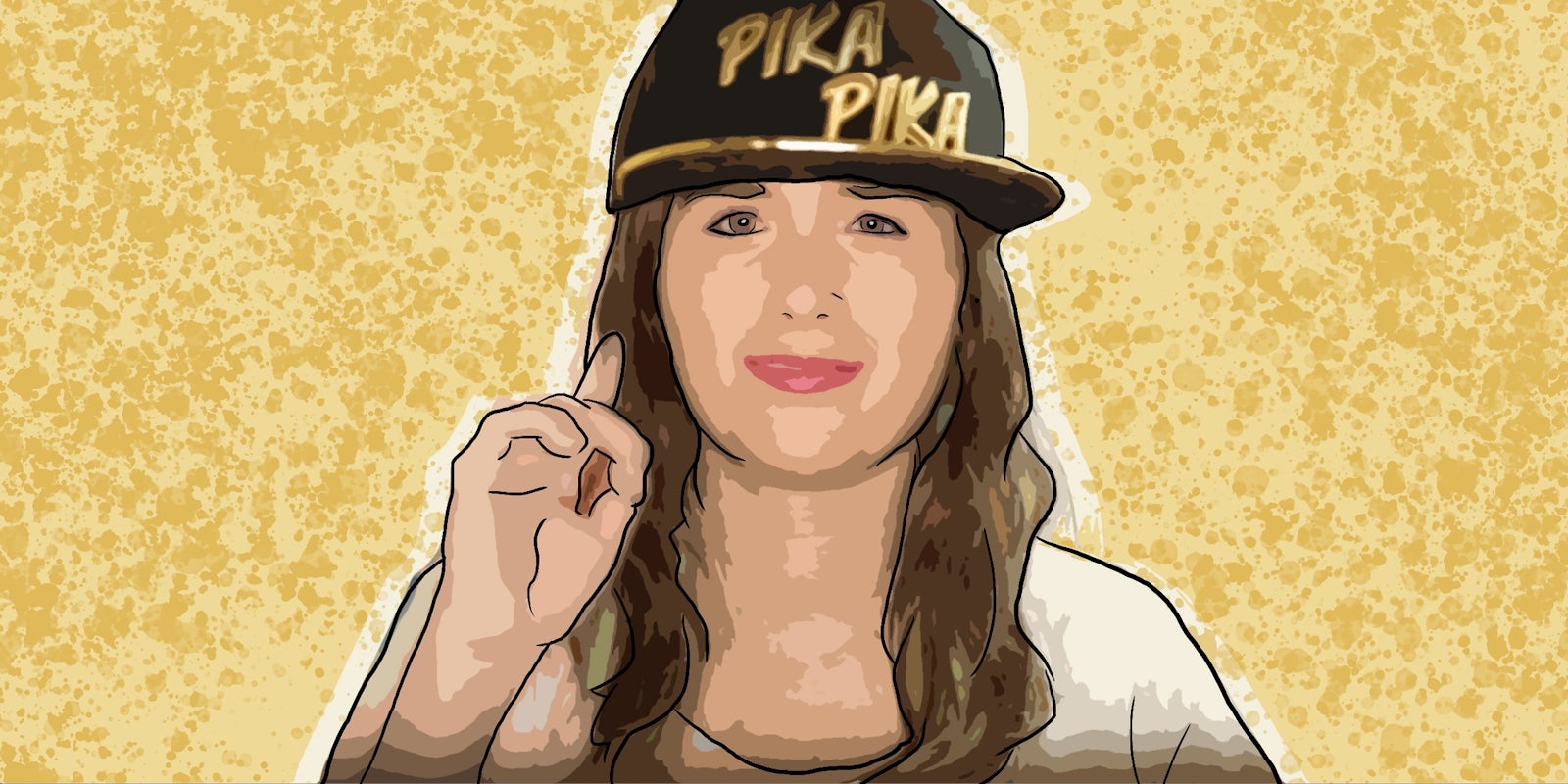Rikki Poynter is on a mission to use her experiences as a Deaf woman to raise awareness about the lack of accessibility on YouTube for her community. She’s already taken giant steps.
Growing up in North Carolina, Poynter was diagnosed as hard of hearing (HOH) when she was 12. As she grew older, her hearing loss progressed, and she is now somewhere between moderate and severely deaf. In America, more than 95 percent of Deaf children are born to hearing parents who have no previous experience with American sign language. This was the beginning of Poynter’s story.
She grew up in a fully oral household and didn’t meet another Deaf person, or begin learning sign language, until her early 20s—an experience she chronicles in her latest video “Too Deaf for the Hearing World, Not Deaf Enough for the Deaf World.”
“There isn’t one type of deaf person out there. So you’ve got me, who grew up mainstreamed and has been involved in Deaf culture for a few years now. But that transition wasn’t easy due to being mainstreamed for so long. People can relate to that. People can relate to being stuck in the middle,” Poytner tells the Daily Dot via email.
It was this warm welcome from the Deaf community that inspired Poynter to set aside her foundation applicator and begin using her YouTube channel as a tool of advocacy. In her videos, Poynter opens up about the hardships and discrimination she faces as a Deaf woman. She talks about the flack she gets from not knowing sign language, how impossible a job interview can feel, bullying, and being made fun of by teachers in school.
When not working as a news writer for the Deaf Professional Arts Network, Poynter is utilizing her vast knowledge of YouTube to mobilize movements around closed captions and Deaf culture.
On YouTube, unless a content creator has gone in and handwritten closed captioning on their videos, it will be dictated by Google’s auto-caption feature. It is a horrible default setting.
In an interview with ABC News, Poynter noted: “I’ve tried to watch a video about concealers and the automatic CC was talking about zebras. I’ve seen other makeup videos have random profanity and other R-rated or NC-17 words and phrases.”
She says this discourages Deaf and HOH viewers from watching and returning to YouTube as the platform’s inaccessibility leads to alienation. As part of her mission to change this problem, Poynter reaches out to creators to explain the importance of closed captioning while also engaging viewers with campaigns like “Do I Look Deaf?” and “#NoMoreCraptions.”
While at times the fight for closed captioning may feel daunting, Poynter’s work is not going unnoticed. In the last two years, her channel has been featured on ABC News, BBC, Huffington Post, Mic, Upworthy, and We the Unicorns. She’s also not the only creator using YouTube to fight for disability awareness. Blind creator Tommy Edison and Deaf lesbian vlogger Jessica Kellgreen-Hayes are using video to put a personality and shatter stereotypes around their disabilities. Last year, Deaf ally Tyler Oakley created a video asking his fans to help him close caption all his videos so that they would now be accessible to his Deaf and HOH viewers.
“To the hearing people that know nothing about this and have made silly assumptions based on what society has ingrained in you, I hope you get some real education out of [my channel]. To the d/Deaf/HOH folks that lived the same life as me, who also felt alone at times, and who still feel out of place, I hope you don’t feel so alone anymore. To the Pokemon fans out there, Eevee is the cutest,” Poynter says.
What makes Poynter stand out is her honesty. She doesn’t shy away from talking about bullying and mental illness. She lays trust in her audience and belief that a personal story can create a community. Because accessibility on YouTube isn’t an issue pursued by only those it affects, it’s an issue we’re all responsible for solving.


